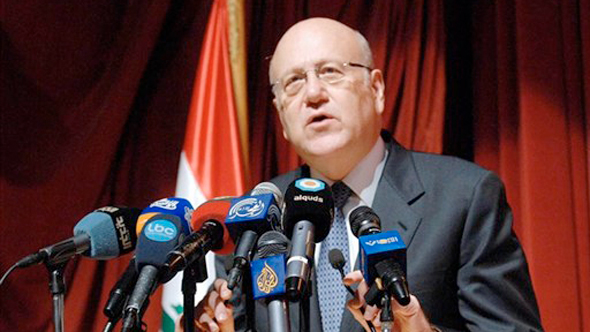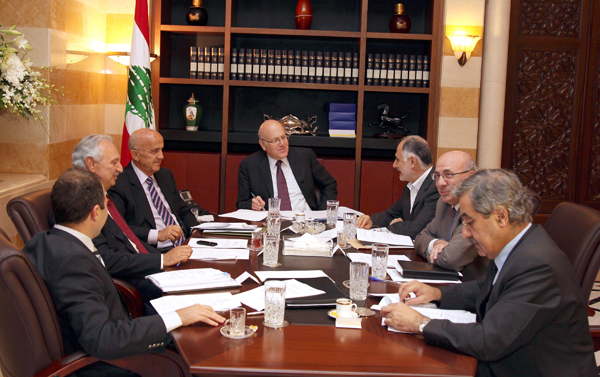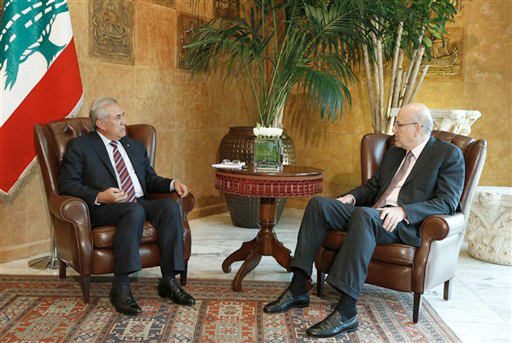Politics in Lebanon: Current Political Overview of Lebanon
Writing about politics always bears the difficulty of where to start. Regarding the Lebanese Arab Republic, the dilemma is more extreme. The questions that arise are where to begin, what to write in the middle and how to end.

Politics in Lebanon: Political Analysis of Lebanon
Writing about politics always bears the difficulty of where to start. Regarding the Lebanese Arab Republic, the dilemma is more extreme. The questions that arise are where to begin, what to write in the middle and how to end.
The Lebanese Republic is officially a parliamentary republic. Deputies are elected to take a seat and build fractions in a parliament which votes for the government.
Lebanon is home to 18 different religious confessions, ethnic groups and tribes, and they all want to be represented. The cedar state’s dilemma is how to take into account all the different views and sensitivities in ruling the country.
However, Lebanon is home to 18 different religious confessions, ethnic groups and tribes, and they all want to be represented. The cedar state’s dilemma is how to take into account all the different views and sensitivities in ruling the country.
Few Arab countries have as many parties as this Levantine country. The press is one of the freest and most open in the Arab world, and newspapers in Arabic, French and English are read across society.
At first glance, the arrangement of politics appears to be a harmonious consensus, and the separation of powers is a constitutional must. As per the constitution, the President must be a Maronite Christian, whereas the Parliament Speaker and Prime Minister must be a Shi’a and Sunni Muslim respectively. In addition, 64 of the 128 seats in parliament are reserved for Muslims, while the other half is for Christian.

It is generally thought that Christians make up to a third of the total population, but as no census has been held since 1932(!), no one knows if this is really true. Visiting the Christian district of Ashrafieh and the Shiite region south of Beirut reveals that the Christian population is much older than the national average, while the followers of the Shī’atu Alī (Party of Ali) have much bigger and younger families. Researchers estimate that the majority of people in Lebanon, perhaps around 60 per cent, are Shiite.
Lebanon’s status quo is symptomatic for the Levantine state’s rollercoaster politics. As there is currently an interim government, politics in Lebanon look pretty unfinished. After a crisis in the government that began in 2010, a new interim government led by telecoms tycoon Najib Azmi Mikati was formed in June 2011. The formation of the current political arrangment took several months.
Mikati’s current term is not his first time in office. Although his solidarity bloc has never had more than two seats in parliament since 2004, Mikati emerged as a consensus candidate in 2005, but took over office for only three months.
Today, 18 of the 30 cabinet members are loyal to the current political coalition. The Shiite led government managed to install a Shiite-Christian-Druze majority. The Druze leader Walid Jumblatt was regarded as the powerbroker in the deal.
His second attempt proved more successful. As of September 2012, Mikati has been serving as his country’s PM for more than a year, leading a cabinet of 30 members. This government is the first to be dominated by Hezbollah, which successfully toppled Mikati’s predecessor Saad al-Hariri.
Today, 18 of the 30 cabinet members are loyal to the current political coalition. The Shiite led government managed to install a Shiite-Christian-Druze majority. The Druze leader Walid Jumblatt was regarded as the powerbroker in the deal.

As the civil war in neighboring Syria triggered an influx of thousands of Syrian refugees into Lebanon, the government’s biggest challenge is to deal with the problem of providing food and shelter to Syrian families; at the same Beirut must pay close attention to keeping violent spillover from Syria at bay. For the moment, Lebanon managed successfuly to avoid the spillover of the conflict in Syria and is regarded as a safe-haven admits turmoil.
However, Lebanon’s future might not be that bleak. Offshore, deep under the Mediterranean waters, Beirut has discovered large reserves of oil and gas. The parliament, in a move of national unity, has already given the green light to explore these reserves, although Israel is claiming that some of the reserves lie in its jurisdiction.